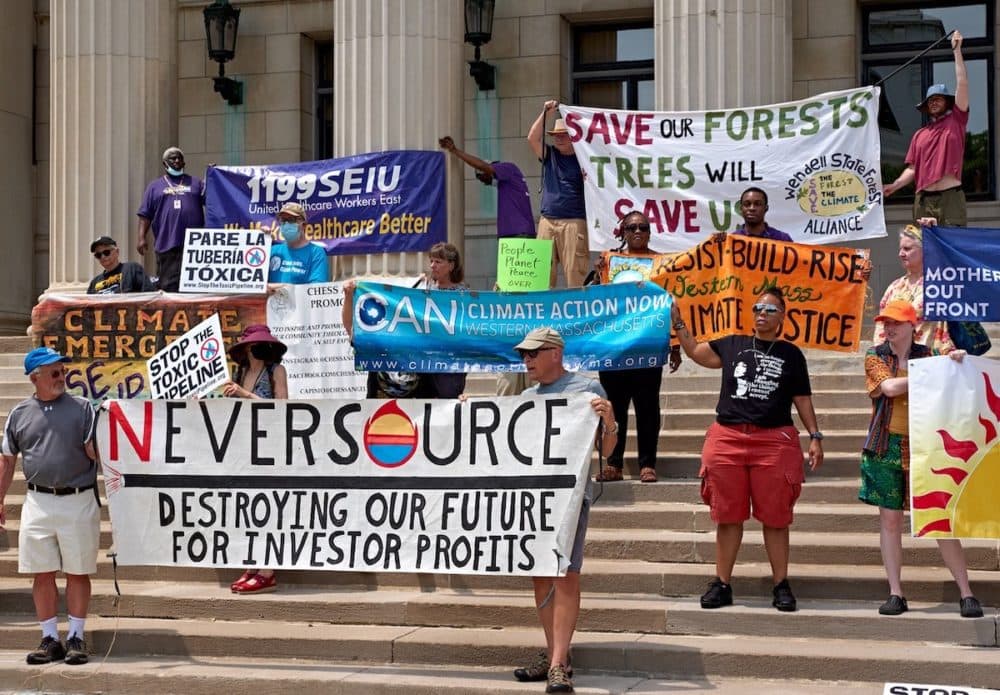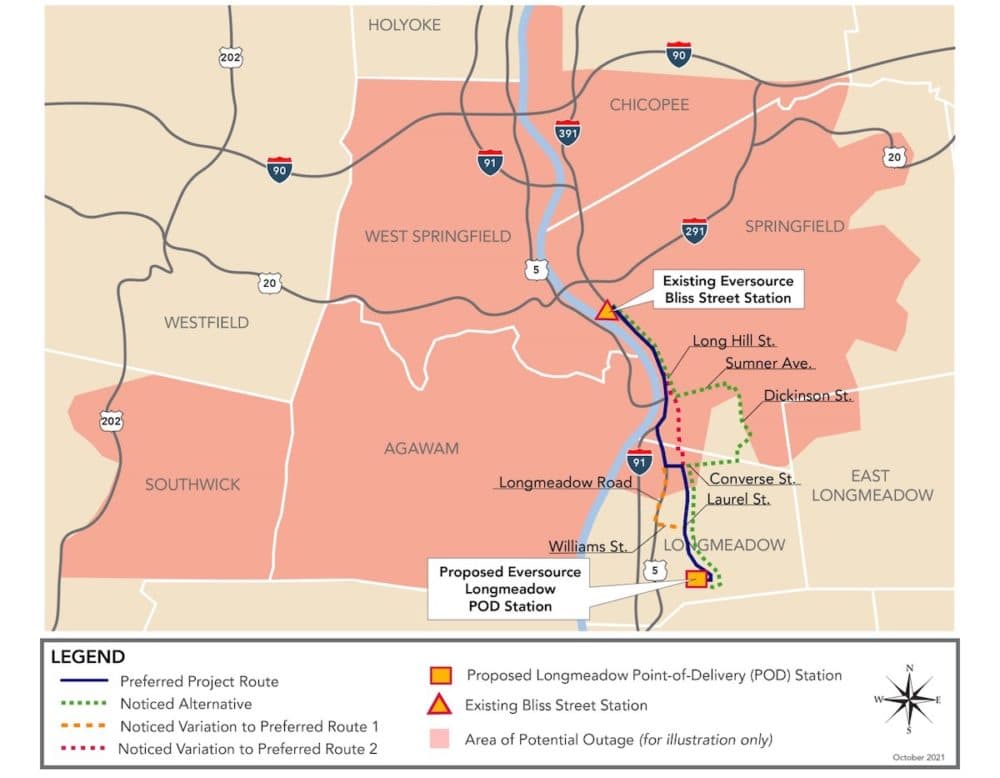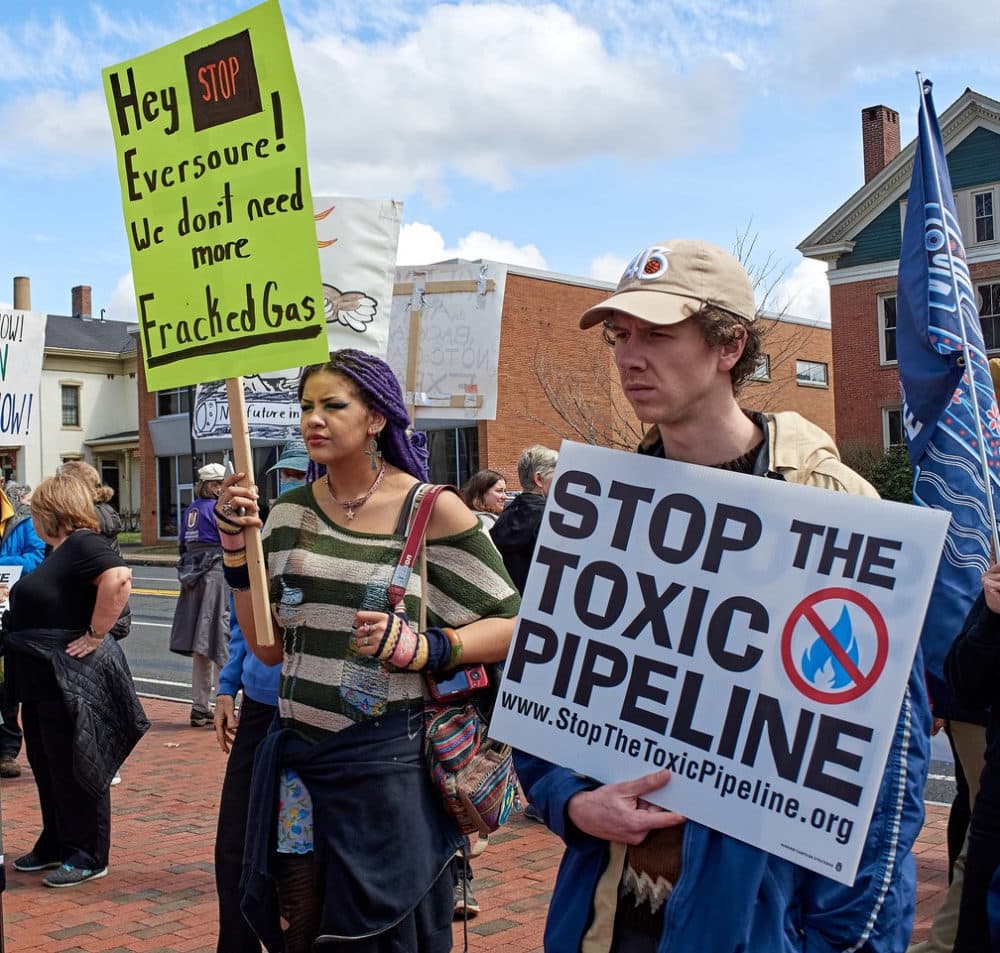Advertisement
Mass. rejects Eversource's environmental review of new gas pipeline project in Springfield

It’s back to the drawing board for the utility Eversource, as Massachusetts’ top environmental official this week rejected the company’s rationale for building a new gas pipeline in Springfield.
In her decision, Energy and Environmental Affairs Secretary Rebecca Tepper said that the company's environmental impact report must include a deeper analysis about how the project would affect the state’s climate goals and impact local communities.
Specifically, she said, the company must study the viability of non-fossil fuel alternatives and host at least one public meeting in Springfield to "meaningfully" engage with local residents, many of whom live in state-designated “environmental justice communities” and are concerned about the health and safety risks they say the project poses.
“This decision means that Eversource has to take more time to actually engage with the community, and really consider all of the impacts and the alternatives to this project,” said Naia Tenerowicz, a Springfield resident and member of the Springfield Climate Justice Coalition. “This is not an end to our fight, but it is a very good sign that the administration is actually taking our environmental justice regulations and laws seriously, that they are listening to the community.”
In a statement, Eversource spokeswoman Pricilla Ress said that the company is reviewing Sec. Tepper’s decision and “will respond accordingly.” Ress declined to say whether this represents a significant setback for the project, saying only that it will delay the approval process “by a few months.”

Officially known as the Western Massachusetts Gas Reliability Project, the $65 million proposal from Eversource consists of three parts:
- A new 5.3 mile underground gas pipeline in Springfield and Longmeadow
- A new above-ground “point of delivery,” or metering station, in Longmeadow, where gas will be siphoned off from the larger regional pipeline, odorized and pushed into the new pipeline
- Upgrades to an existing regulator station in Springfield, which reduces the pressure of gas so it can move into the smaller pipelines that go to customers.
Eversource says the project is critical for ensuring homes and businesses in the Springfield area have sufficient gas for heating during the winter.
“More than 58,000 of our natural gas customers in the Greater Springfield area are currently served by a single, 70-year-old natural gas pipeline system,” Ress said in a statement. Building this new pipeline and associated infrastructure “will provide a much-needed second supply source to enhance reliability.”
Advertisement
It’s all about redundancy and resiliency, project manager Richard Salvarezza told residents at a state hearing last December.
“We are not trying to expand,” he said. “We are trying to strengthen the system that is already there.”
But many local residents don’t see it that way. Community members have expressed concerns about climate impacts, public safety and environmental justice.
And many of those concerns were echoed in the state’s ruling this week. Tepper wrote that Eversource’s environmental impact report “has not fully justified the purpose and need for the project, and does not explain why the risk of outage was determined to be unacceptably high at this location so as to warrant immediate action, as compared to other areas with aged infrastructure throughout the Proponent’s statewide distribution network.”
She also noted that “Given the location of the project within [environmental justice] populations, the [revised environmental report] should discuss how and why this location was chosen for infrastructure upgrades, and whether the presence of [environmental justice] and other vulnerable populations was considered as a factor in site selection.”

“The administration is sending a clear signal that companies can't just move forward the way they potentially have in the past — that they need to actually talk to residents,” said Mireille Bejjani, co-executive director of the environmental group Slingshot, which has helped organize the opposition to the this project. “They’re not just giving it a rubber stamp.”
Though this recent decision from the state does not stop the project, and likely constitutes only a small speed bump, Bejjani said, it still represents something significant.
When the Healey administration first took office, environmental groups around the state talked about this pipeline project as a “really important litmus test for the new administration,” she said.
“Unlike previous projects like the Peabody Peaker Plant and the Eastie substation that were much further along by the time the Healey administration took over, [on this project] they’re coming in more at the ground level of the permitting process,” she said. “Obviously it's just one project. It's just one decision. It’s not necessarily going to set the tone for the entire administration and other projects, but I think it is a pivot from the Baker administration, for sure.”
Earlier this week, the Healey administration sided with environmentalists and community advocates by blocking a controversial plan to dump radioactive water from the former Pilgrim Nuclear Power Plant into Cape Cod Bay.
As for what comes next for the Springfield project, after Eversource submits the next draft of its environmental impact report — which will likely happen in a few months — the public and state will once again weigh in on the document.
Should the state decide that the company was thorough enough, Eversource will submit a final environmental impact report. If that’s approved, the company can begin applying for other necessary state permits.
The project is simultaneously being reviewed by the state’s Energy Facility’s Siting Board.
